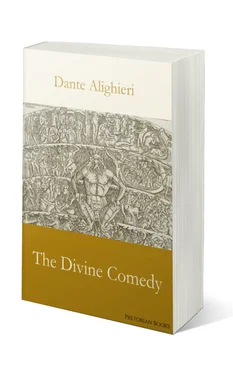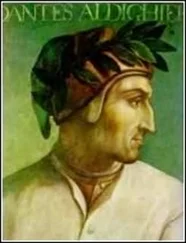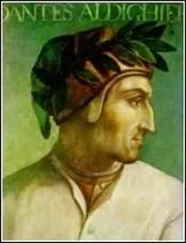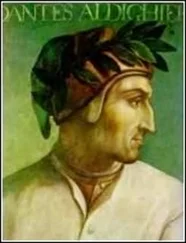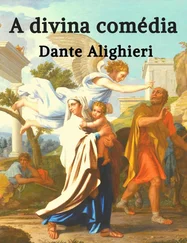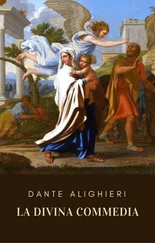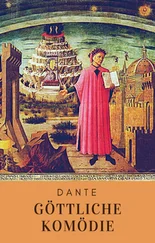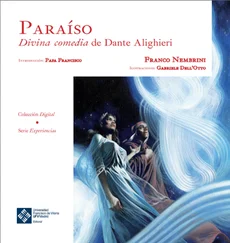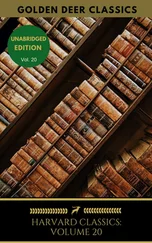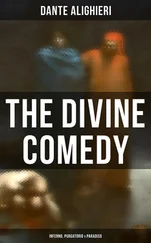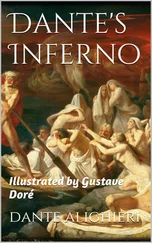1 ...6 7 8 10 11 12 ...19 This warning added: "See thy words be clear!"
He, soon as there I stood at the tomb's foot,
Ey'd me a space, then in disdainful mood
Address'd me: "Say, what ancestors were thine?"
I, willing to obey him, straight reveal'd
The whole, nor kept back aught: whence he, his brow
Somewhat uplifting, cried: "Fiercely were they
Adverse to me, my party, and the blood
From whence I sprang: twice therefore I abroad
Scatter'd them." "Though driv'n out, yet they each time
From all parts," answer'd I, "return'd; an art
Which yours have shown, they are not skill'd to learn."
Then, peering forth from the unclosed jaw,
Rose from his side a shade, high as the chin,
Leaning, methought, upon its knees uprais'd.
It look'd around, as eager to explore
If there were other with me; but perceiving
That fond imagination quench'd, with tears
Thus spake: "If thou through this blind prison go'st.
Led by thy lofty genius and profound,
Where is my son? and wherefore not with thee?"
I straight replied: "Not of myself I come,
By him, who there expects me, through this clime
Conducted, whom perchance Guido thy son
Had in contempt." Already had his words
And mode of punishment read me his name,
Whence I so fully answer'd. He at once
Exclaim'd, up starting, "How! said'st thou he HAD?
No longer lives he? Strikes not on his eye
The blessed daylight?" Then of some delay
I made ere my reply aware, down fell
Supine, not after forth appear'd he more.
Meanwhile the other, great of soul, near whom
I yet was station'd, chang'd not count'nance stern,
Nor mov'd the neck, nor bent his ribbed side.
"And if," continuing the first discourse,
"They in this art," he cried, "small skill have shown,
That doth torment me more e'en than this bed.
But not yet fifty times shall be relum'd
Her aspect, who reigns here Queen of this realm,
Ere thou shalt know the full weight of that art.
So to the pleasant world mayst thou return,
As thou shalt tell me, why in all their laws,
Against my kin this people is so fell?"
"The slaughter and great havoc," I replied,
"That colour'd Arbia's flood with crimson stain—
To these impute, that in our hallow'd dome
Such orisons ascend." Sighing he shook
The head, then thus resum'd: "In that affray
I stood not singly, nor without just cause
Assuredly should with the rest have stirr'd;
But singly there I stood, when by consent
Of all, Florence had to the ground been raz'd,
The one who openly forbad the deed."
"So may thy lineage find at last repose,"
I thus adjur'd him, "as thou solve this knot,
Which now involves my mind. If right I hear,
Ye seem to view beforehand, that which time
Leads with him, of the present uninform'd."
"We view, as one who hath an evil sight,"
He answer'd, "plainly, objects far remote:
So much of his large spendour yet imparts
The Almighty Ruler; but when they approach
Or actually exist, our intellect
Then wholly fails, nor of your human state
Except what others bring us know we aught.
Hence therefore mayst thou understand, that all
Our knowledge in that instant shall expire,
When on futurity the portals close."
Then conscious of my fault, and by remorse
Smitten, I added thus: "Now shalt thou say
To him there fallen, that his offspring still
Is to the living join'd; and bid him know,
That if from answer silent I abstain'd,
'Twas that my thought was occupied intent
Upon that error, which thy help hath solv'd."
But now my master summoning me back
I heard, and with more eager haste besought
The spirit to inform me, who with him
Partook his lot. He answer thus return'd:
"More than a thousand with me here are laid
Within is Frederick, second of that name,
And the Lord Cardinal, and of the rest
I speak not." He, this said, from sight withdrew.
But I my steps towards the ancient bard
Reverting, ruminated on the words
Betokening me such ill. Onward he mov'd,
And thus in going question'd: "Whence the amaze
That holds thy senses wrapt?" I satisfied
The inquiry, and the sage enjoin'd me straight:
"Let thy safe memory store what thou hast heard
To thee importing harm; and note thou this,"
With his rais'd finger bidding me take heed,
"When thou shalt stand before her gracious beam,
Whose bright eye all surveys, she of thy life
The future tenour will to thee unfold."
Forthwith he to the left hand turn'd his feet:
We left the wall, and tow'rds the middle space
Went by a path, that to a valley strikes;
Which e'en thus high exhal'd its noisome steam.
UPON the utmost verge of a high bank,
By craggy rocks environ'd round, we came,
Where woes beneath more cruel yet were stow'd:
And here to shun the horrible excess
Of fetid exhalation, upward cast
From the profound abyss, behind the lid
Of a great monument we stood retir'd,
Whereon this scroll I mark'd: "I have in charge
Pope Anastasius, whom Photinus drew
From the right path.—Ere our descent behooves
We make delay, that somewhat first the sense,
To the dire breath accustom'd, afterward
Regard it not." My master thus; to whom
Answering I spake: "Some compensation find
That the time past not wholly lost." He then:
"Lo! how my thoughts e'en to thy wishes tend!
My son! within these rocks," he thus began,
"Are three close circles in gradation plac'd,
As these which now thou leav'st. Each one is full
Of spirits accurs'd; but that the sight alone
Hereafter may suffice thee, listen how
And for what cause in durance they abide.
"Of all malicious act abhorr'd in heaven,
The end is injury; and all such end
Either by force or fraud works other's woe
But fraud, because of man peculiar evil,
To God is more displeasing; and beneath
The fraudulent are therefore doom'd to' endure
Severer pang. The violent occupy
All the first circle; and because to force
Three persons are obnoxious, in three rounds
Each within other sep'rate is it fram'd.
To God, his neighbour, and himself, by man
Force may be offer'd; to himself I say
And his possessions, as thou soon shalt hear
At full. Death, violent death, and painful wounds
Upon his neighbour he inflicts; and wastes
By devastation, pillage, and the flames,
His substance. Slayers, and each one that smites
In malice, plund'rers, and all robbers, hence
The torment undergo of the first round
In different herds. Man can do violence
To himself and his own blessings: and for this
He in the second round must aye deplore
With unavailing penitence his crime,
Whoe'er deprives himself of life and light,
In reckless lavishment his talent wastes,
And sorrows there where he should dwell in joy.
To God may force be offer'd, in the heart
Denying and blaspheming his high power,
And nature with her kindly law contemning.
And thence the inmost round marks with its seal
Sodom and Cahors, and all such as speak
Contemptuously of the Godhead in their hearts.
"Fraud, that in every conscience leaves a sting,
May be by man employ'd on one, whose trust
He wins, or on another who withholds
Strict confidence. Seems as the latter way
Broke but the bond of love which Nature makes.
Whence in the second circle have their nest
Dissimulation, witchcraft, flatteries,
Читать дальше
